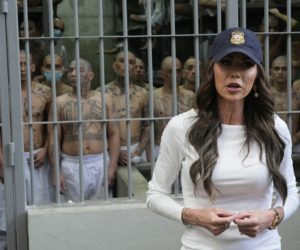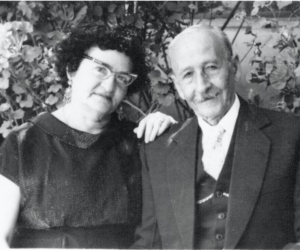The original 1787 National Convention assembled 55 delegates in Philadelphia. Over a period of four months this small group drafted the U.S. Constitution that was formally adopted by a supermajority of existing States and became effective in 1789. For most of its 220 years, it has provided the national governmental structure to create one of the most important, democratic, economically wealthy, influential, and powerful nations in the history of the world.
The U.S. Constitution is a remarkably short document that essentially established a power-sharing arrangement and it specified the formal process of how to pass laws. It protected some basic human freedoms, but its flexibility and strengths over the past two centuries are a result of simple yet open language that left most all policy choices to future generations of Americans. It was more interested in the process of governing, not dictating the final results.
California, by far the largest U.S. state in population and in global economic and cultural power, is now at an important juncture in its history. Because it also is a harbinger of things to come for the rest of the nation, everyone in the U.S. and many other countries are concerned about its current and future decisions.
Over the past 2 decades, California has degenerated into a completely dysfunctional state unable to organize its governmental structure at all levels. It cannot properly administer and balance multiple state programs and taxes; adequately encourage private investment or educate its resident population; public finances are not corresponding with public policy needs and desires; and angry, vitriolic, and extremely narcissistic self-interest groups dominate its political life at all levels. Furthermore, its huge economy is quickly losing its global competitiveness, resulting in massive unemployment, and few if any good ideas on how to turn itself around economically or politically. The Dream has degenerated into a surreal nightmare with both political parties having arrived and stopped at their extreme ideological apotheoses.
There now is a laughable proposal to appoint 435 Delegates to modify the existing or write a new State Constitution. The current document is already one of longest, most convoluted and unworkable governing messes on the face of the earth. Today, any distinct minority can control the entire political and budget process in Sacramento. The State’s Constitution can be changed and new laws passed by mere majority consent of the electorate that bothers to vote in any particular state-wide election. Currently raising any particular tax requires a super majority vote in both houses of the State Legislature yet only a simple majority of actual voters can lower taxes or worse yet require specific spending policies that become unfunded mandates.
The first massive problem comes with having 435 Delegates convening in a perpetual 24/7 Media circus. The 1787 Convention in Philadelphia was a strictly private affair attended by probably some of the greatest living minds in North America at the time. The California assemblage might possess many great minds but there are simply too many delegates to produce any worthwhile document within any reasonable time period. Are there really 435 distinct groups in the State that each must get a representative?
The U.S. Constitution was principally drafted by a handful of influential delegates out of the total of 55 wealthy educated white men. Despite all the advanced technological gadgets available today for communicating and producing legal documents, the California convention will naturally degenerate into complete chaos within a few weeks. Perhaps the drafting process could be outsourced to Indian lawyers who already live under the world’s longest constitution.
After the first 6 months of endless debate, arguing and bickering over seating arrangements, hotel rooms, and text-messaging limitations, additional weeks will be lost debating whether Veganism, Zoroastrianism, and Scientology should be considered principle state religions. Even the god-damn daily luncheon choices would be hotly debated. By 2020, Californians will still be waiting for something to be produced upon which the electorate can vote. In addition, are these delegates going to be paid with state IOU’s or by their various special interest employers?
At this juncture, California does not need a plethora of representatives from all the public employee unions, San Francisco bicycle commuters, Los Angeles community organizers, bi-racial and bi-sexual Mormons and Catholics, and a small army of other narrow-minded people and organizations that 435 job openings would create. Some white suburban men might have to be removed to make room for Latina gang members to ensure a more inclusive convention.
The state does not have the luxury of time to listen to endless and trivial testimony from thousands of “concerned citizens” and engage in endless internal debates over rules of procedure with respect to the adoption of punctuation mark in all initial drafts. Knowing California, there could be multiple lawsuits filed and years of litigation surrounding the final appointed and elected choices of the 435 delegates, and additional demands the total group be expanded to a more representative 5,225 delegates though some illegal immigrants would have to be appointed as alternate delegates pending the results of the 2010 Census.
There might have to be a constitutional option for total succession from the U.S. and merger with Baja California in Mexico. That might require a further mandated expansion of and funding increase to the High Speed Rail Authority for its perpetual planning. The California Constitutional Convention would amplify ten-fold all the current problems the state faces and would sadly result in nothing being accomplished.
A small group of no more than three dozen people should assemble together in a secluded, secret conclave to write a new California Constitution within 6 months. There are enough top minds in academia, private business, and a few non-profit organizations to assemble an outstanding group of people to write a new State Constitution for voter approval. The potential delegates could start by emailing each other privately and come up with their final working group by the end of 2009. Considering the alternative, a wholly self-organized group would be far superior to any proposed large group of appointed and elected representatives.
A minority of the delegates should be law professors from various California Universities and the rest be top minds from others in academia and the private sector known for their intellects, creativity, independence, and long-term outlooks despite any partisan leanings. Most elected politicians and appointed bureaucrats should not be included as delegates as they are part of the status-quo that is significantly responsible for this massive mess. For those large egos left out of the convention, they should be able to privately email or mail via USPS (but not twitter) their ideas to a designated administrative secretary for the Convention. This small group should go about its work in privacy and present a fait accompli for public scrutiny by May 2010.
What California needs is a short, concise, flexible, and rational organizational structure and workable, efficient and clear public process to pass all types of laws and policies for the 21st Century. It must specify a formal hierarchy for “who makes the final decision” and decide whether binding state-wide legal consent is achieved by simple or super majorities. All public officials with broad legal and administrative powers should be subject to periodic voter approval.
The final document does not need to address every current financial, cultural, social, or microeconomic issue conceivable or try to divine all future problems for correction today. It should not designate preferred economic or environmental policies for all perpetuity. It should use various existing technologies to enhance democracy by an informed electorate, and permit new ones to be incorporated into the democratic process. However, it should establish a few important and fixed demarcations between individual liberties and governmental power.
The new Constitutional structure should permit all existing governmental programs and policies, along with the entire California Legal Code and its accompanying administrative rules and regulations to be fully reviewed, updated or replaced by new policies and procedures, if approved by the same stipulated majorities required for all future legal changes. It can no longer permit minorities or special interests to hold the entire state hostage to any rigid ideological or intransigent financial demands. The state cannot afford to grandfather and pay forward most of its public employee salary, pension, and benefit contracts in perpetuity.
The Constitution should not specify any inflexible spending programs or limitations on any types of taxes. However the political process should permit those results only by super majorities of both the elected State Government and general public. It should not try to delineate all types of individual and group rights, many of which are also best left to the political process. Every public or private outrage or implied insult should not constitute a legally-defined hate crime.
In the event that the 30 or so delegates are at irreconcilable odds on specific points of political and constitutional philosophy, they should draft two alternative sections with regards to those specific impasses. Then those alternatives would be additional sub-choices for the California electorate within the approval process of the overall document.
The new State Constitution should initially be approved, and any future changes to it, by a super-majority vote of 60% of all registered voters. If a proposed new State Constitution and the future of all Californians do not elicit a sufficient voter interest and total turnout, then nothing should be accomplished and the state should be permitted to continue its slide into a man-made perpetual purgatory. For all of its current governmental, economic and social problems, all registered California voters must share in the ultimate responsibility for their collective future.
Submitted by Marc Pascal. I have lived in Phoenix, AZ for the past three and an half years, after having spent most of my life in Ohio and Illinois, and living abroad several times in Europe. I have visited California many times from 1990 to the present day on business or for vacations. I am deeply concerned about that state’s future and the future of the entire United States. We do not have the luxury of endless debate and partisanship completely removed from reality, when global events are leaving us all far behind. Given a few months of time and a reasonable financial stipend, I could draft a sane, concise, forward-looking, and non-partisan document all by myself. I can be reached by email at [email protected].
















